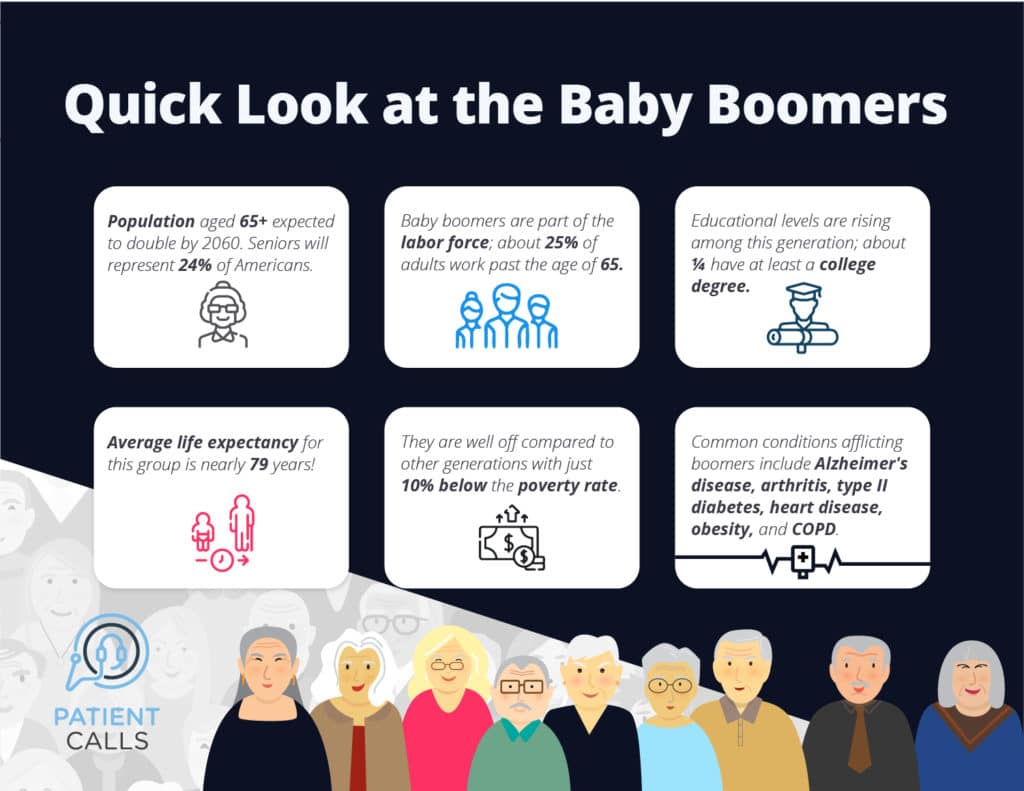
Baby Boomer Health Care: Navigating the Challenges and Opportunities
Introduction
Baby boomers, born between 1946 and 1964, are the largest generation in American history. As they age, their health care needs are becoming increasingly complex and costly. This article explores the unique challenges and opportunities facing baby boomers in the health care system, and provides guidance on how to navigate these complexities.
Challenges
1. Chronic Conditions:
Baby boomers are more likely to develop chronic conditions such as heart disease, cancer, diabetes, and arthritis. These conditions require ongoing management and can significantly impact quality of life.
2. Multiple Medications:
Many baby boomers take multiple medications to manage their chronic conditions. This can lead to drug interactions, side effects, and medication errors.
3. Rising Health Care Costs:
Health care costs have been rising steadily for decades, and this trend is expected to continue. Baby boomers may face significant financial burdens as they age and require more medical care.
4. Access to Care:
As baby boomers age, they may experience difficulties accessing health care services due to factors such as transportation challenges, limited insurance coverage, and a shortage of geriatric specialists.
Opportunities
1. Preventive Care:
Baby boomers can take proactive steps to prevent or delay the onset of chronic conditions through healthy lifestyle choices, such as regular exercise, a balanced diet, and avoiding tobacco and excessive alcohol consumption.
2. Medication Management:
Pharmacists and other health care professionals can assist baby boomers in managing their medications effectively, reducing the risk of drug interactions and side effects.
3. Long-Term Care Planning:
Long-term care planning can help baby boomers prepare for the potential need for assistance with daily activities as they age. This may include exploring options such as home health care, assisted living, or nursing home care.
4. Health Care Technology:
Advances in health care technology, such as telemedicine and wearable devices, can provide baby boomers with convenient and accessible ways to monitor their health and manage their conditions.
5. Advocacy and Support:
Baby boomers can advocate for their health care needs by joining support groups, contacting elected officials, and participating in research studies.
Navigating the Health Care System
1. Choose a Primary Care Physician:
A primary care physician (PCP) can provide comprehensive care and coordinate referrals to specialists as needed. It is important to choose a PCP who is experienced in geriatric care.
2. Get Regular Checkups:
Regular checkups allow your PCP to monitor your health, screen for potential problems, and provide preventive care.
3. Manage Medications Wisely:
Follow your doctor’s instructions for taking medications, and consult with a pharmacist if you have any questions or concerns.
4. Explore Long-Term Care Options:
Consider long-term care planning early on to ensure you have the necessary support in place as you age.
5. Utilize Health Care Technology:
Take advantage of health care technology to monitor your health, manage your medications, and connect with health care professionals remotely.
6. Advocate for Your Needs:
Don’t hesitate to ask questions, express your concerns, and advocate for your health care needs.
7. Stay Informed:
Keep up-to-date on health care news and research to make informed decisions about your care.
Conclusion
Baby boomers face unique challenges and opportunities in the health care system. By understanding these complexities and taking proactive steps, they can navigate the system effectively, maintain their health and well-being, and enjoy a fulfilling retirement. Remember, it is never too late to prioritize your health and take control of your care.
